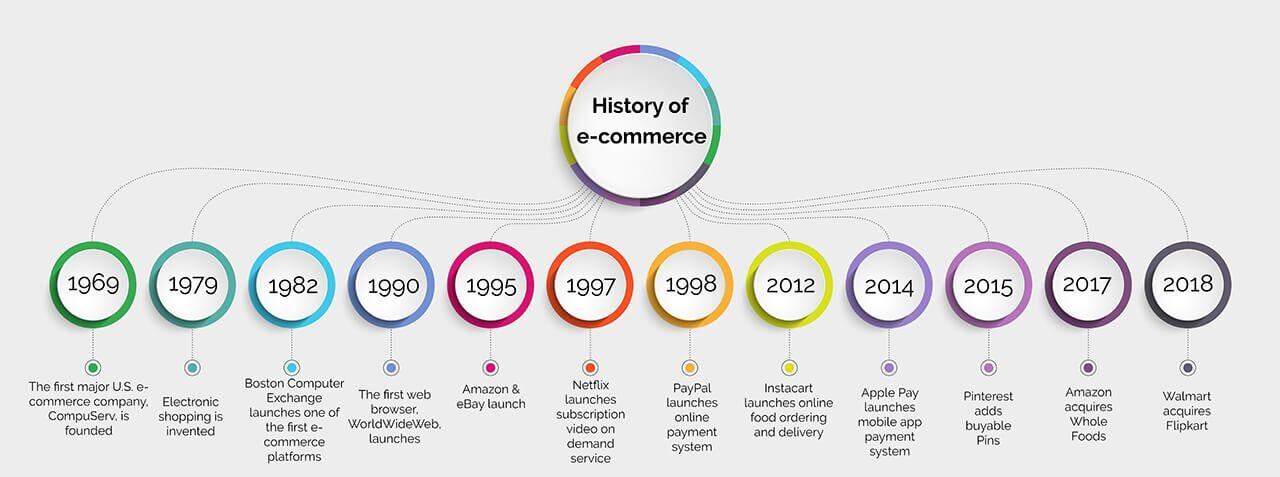
The Future of Shopping: How AI is Changing E-commerce and Discounts
Posted on |
As we step further into the digital age, the world of shopping is undergoing a profound transformation. The conventional brick-and-mortar experience is increasingly overshadowed by the convenience and accessibility of e-commerce. At the heart of this revolution lies artificial intelligence (AI), a powerful tool that is reshaping how we shop, interact with brands, and discover new products. From personalized recommendations to dynamic pricing and automated customer service, AI is not just a buzzword but a fundamental shift that is redefining the entire shopping landscape. In this article, we’ll explore the future of shopping and how AI is innovating e-commerce and discounting strategies, paving the way for a more efficient, tailored, and satisfying shopping experience for consumers around the globe.
Table of Contents
- The Evolution of E-commerce in the Age of AI
- Understanding Consumer Behavior through AI Analytics
- Personalized Shopping Experiences: The Role of Machine Learning
- Dynamic Pricing Strategies: How AI is Transforming Discounts
- Enhancing Customer Service with AI-Powered Chatbots
- AI-Driven Inventory Management for Optimized Supply Chains
- The Impact of Voice Search on Online Shopping Trends
- Future Trends: What to Expect from AI in E-commerce
- Q&A
- Wrapping Up

The Evolution of E-commerce in the Age of AI
The landscape of online shopping has dramatically transformed with the advent of artificial intelligence, driving not just innovation but also enhancing user experience substantially. AI technologies are employed to personalize interactions with customers, allowing retailers to tailor their offerings based on individual preferences and shopping behaviors. This personalization manifests through smart recommendations and targeted marketing strategies, ensuring that shoppers encounter products that resonate with their interests. Major platforms leverage data analytics to predict trends and optimize inventory, resulting in a more streamlined purchasing process that caters directly to consumer needs.
In addition to personalization, AI is revolutionizing pricing strategies within e-commerce. Utilizing algorithms that analyze market dynamics and consumer behavior, brands can implement demand-based pricing models. This approach not only maximizes profitability but also provides consumers with competitive pricing, encouraging more frequent purchases. Discounts and promotional offers can be dynamically adjusted in real-time, enhancing customer engagement and satisfaction. Solutions like ViCoupon.Com further aid this evolution by providing users with automated discount options, enabling shoppers to access the best deals effortlessly.
The integration of AI in customer service has also transformed the e-commerce experience. Through the use of chatbots and virtual assistants, businesses can address inquiries instantly, providing support around the clock. This responsiveness not only improves customer satisfaction but also frees up human resources for more complex queries. As AI continues to evolve, its impact on e-commerce is expected to deepen, forging a future where shopping is even more convenient, intelligent, and personalized for consumers, while driving profitability for retailers.
Understanding Consumer Behavior through AI Analytics
In the digital age, understanding consumer behavior has become crucial for businesses aiming to thrive in the competitive e-commerce landscape. By leveraging **AI analytics**, companies are now equipped with powerful tools that can decode the intricate patterns of consumer purchasing habits. **Machine learning algorithms** analyze vast amounts of data from various sources, enabling retailers to predict trends and identify what drives individual consumer preferences. This clarity not only facilitates more tailored marketing strategies but also enhances inventory management by aligning stock levels with anticipated consumer demand.
The insights derived from AI analysis can also lead to **dynamic pricing models**, where discounts are adjusted in real-time based on consumer activity and market conditions. For instance, e-commerce platforms can recognize when a product is gaining interest and automatically increase its price, or conversely, drop prices to attract more buyers when demand wanes. An excellent example is **ViCoupon.Com**, which employs AI to curate personalized discount offers based on user behavior, ensuring that customers receive deals that resonate with their specific shopping patterns.
Moreover, AI can drive **personalization** to unprecedented levels, crafting a unique shopping experience tailored to each user. By analyzing past purchases, browsing history, and even social media interactions, AI tools can recommend products that align with a consumer’s interests and lifestyle. This level of customization not only enhances customer satisfaction but also fosters brand loyalty, as shoppers are more likely to return to platforms that understand and anticipate their needs. Through intelligent use of AI analytics, the future of shopping holds great promise for both consumers and retailers alike.
Personalized Shopping Experiences: The Role of Machine Learning
Machine learning is transforming the landscape of e-commerce by creating personalized shopping experiences that cater to individual preferences and behaviors. Retailers are leveraging complex algorithms to analyze data from various touchpoints, such as browsing history and purchase patterns. This approach allows them to create tailored recommendations, ensuring that the products presented align closely with what a customer is likely to purchase. For instance, platforms like Personal Creations utilize machine learning to enhance their offerings, providing users with personalized photo gifts and custom items that resonate with their unique tastes and occasions.
Moreover, machine learning facilitates dynamic pricing strategies that adjust to market demands and customer interactions. By analyzing real-time data, businesses can offer discounts tailored to specific customer segments, encouraging repeat purchases and fostering brand loyalty. Services like ViCoupon.Com epitomize this trend by aggregating personalized discounts and offers, making it easier for consumers to find deals that align with their shopping habits. This not only enhances the shopping experience but also helps customers save money and feel valued in their purchases.
Additionally, chatbots and virtual assistants powered by machine learning are starting to play a pivotal role in personalized shopping. These intelligent systems can engage with customers in real-time, answering queries and providing product recommendations based on user input. This seamless interaction creates a more engaging shopping environment, bridging the gap between online and physical retail experiences. As machine learning continues to evolve, we can expect even more sophisticated tools that further enhance personalization, making shopping not just a transactional experience but a customized journey tailored to each buyer’s needs.
Dynamic Pricing Strategies: How AI is Transforming Discounts
In the ever-evolving landscape of e-commerce, businesses are increasingly tapping into the power of artificial intelligence to optimize their pricing strategies. **Dynamic pricing** is becoming a game-changer, allowing companies to adjust their prices in real-time based on various factors such as demand fluctuations, competitor pricing, and consumer behavior. This smart adaptation ensures that businesses remain competitive while maximizing their revenue potential and offering tailored discounts that resonate with individual shoppers.
One of the key benefits of AI-driven pricing models is their ability to analyze vast amounts of data quickly. By leveraging advanced algorithms, retailers can predict the most favorable moments to offer discounts, effectively enticing customers to complete their purchases. These strategies often include:
- Seasonal Adjustments: Prices can reflect seasonal demand patterns, offering discounts during off-peak periods to stimulate sales.
- Personalized Offers: AI analyzes customer preferences and purchase history to create bespoke discount packages, enhancing customer loyalty.
- Competitive Match Pricing: Tools can monitor competitors’ pricing in real-time, adjusting prices as necessary to stay ahead or maintain market share.
For consumers, this translates into a more dynamic shopping experience. Deals that might have been static in the past are now tailored to individual needs, allowing shoppers to capitalize on discounts that feel more personal and timely. Innovations in platforms like ViCoupon.Com showcase how AI is enabling users to discover the best deals available, blending technology with consumer-driven strategies to enhance the shopping journey. As these technologies continue to develop, the future of online shopping promises to be more intuitive, responsive, and rewarding for everyone involved.
Enhancing Customer Service with AI-Powered Chatbots
As e-commerce continues to grow at an unprecedented rate, businesses are turning to AI-driven solutions to elevate customer interactions. **AI-powered chatbots** have emerged as invaluable tools, facilitating seamless communication between brands and consumers. These intelligent systems can handle a multitude of tasks, enabling customers to receive instant answers to their inquiries, regardless of the time of day. This advancement not only enhances customer satisfaction but also streamlines the overall shopping experience.
One of the standout features of AI chatbots is their ability to offer personalized assistance. By leveraging machine learning algorithms and consumer data, chatbots can make relevant product recommendations based on previous purchases and browsing behavior. This leads to a more tailored shopping journey, making it easier for customers to discover items they’ll love. Furthermore, they can provide updates on promotions and discounts, ensuring that users are always in the loop about the latest deals, such as those found at ViCoupon.Com.
Moreover, integrating chatbots into customer service can significantly reduce the workload on human staff. By handling routine inquiries—like order statuses or general product information—AI systems free up customer service representatives to focus on more complex issues. This efficiency not only speeds up response times but also helps maintain a consistently high level of service. As technology evolves, the role of AI chatbots in e-commerce is anticipated to become even more sophisticated, leading to an overall more enjoyable and efficient shopping experience for consumers everywhere.
AI-Driven Inventory Management for Optimized Supply Chains
Artificial Intelligence is reshaping inventory management in profound ways, significantly enhancing the efficiency of supply chains. By leveraging sophisticated algorithms and machine learning, businesses can analyze vast datasets to make informed decisions about stock levels. This predictive technology empowers organizations to forecast demand more accurately, helping them avoid both overstocking and stockouts. As a result, companies can optimize their inventory strategies, leading to improved cash flow and operational efficiency.
One of the remarkable advantages of AI in inventory management is its ability to integrate real-time data from various sources. By analyzing factors such as customer demographics, seasonal trends, and even external influences like weather patterns, AI provides deeper insights into buying behaviors. This capability is vital for businesses to adjust their strategies dynamically. For instance, e-commerce platforms can respond to sudden market fluctuations, ensuring they meet customer demand without excess inventory burden.
Moreover, incorporating AI-driven inventory management tools can enable companies to create a more resilient supply chain. Automated systems can facilitate frequent stock assessments and reorder processes, minimizing human error and maximizing operational uptime. Platforms like ViCoupon.com can complement these systems by providing real-time discounting strategies, ensuring businesses remain competitive while managing their inventory effectively. As AI continues to evolve, its integration into inventory management will be essential for driving progress in e-commerce and enhancing the overall shopping experience.
The Impact of Voice Search on Online Shopping Trends
The rise of voice search technology has revolutionized the way consumers approach online shopping. As more people utilize voice-activated devices to browse and purchase products, retailers are adapting their strategies to meet this new demand. Voice search streamlines the shopping experience by allowing consumers to quickly input their queries without the need for typing. This hands-free convenience, combined with the intuitive nature of voice commands, encourages more impulsive purchases, often led by product recommendations from smart assistants like Google Assistant and Alexa.
One significant impact of voice search is the growing emphasis on conversational keywords. Retailers now realize that customers using voice search tend to use more natural language and longer phrases compared to traditional text-based search. This shift has led to an increase in the optimization of product listings and content to align with these conversational queries, thereby enhancing visibility in search results. For instance, instead of typing “running shoes,” a user might say, “What are the best running shoes for trail running?” Retailers can leverage this behavior by tailoring their SEO strategies accordingly.
Furthermore, platforms such as ViCoupon.Com have emerged to capitalize on voice search trends, providing users with instant access to discounts and special offers through simple voice commands. This seamless integration of voice technology with e-commerce solutions not only enhances user experience but also drives sales through promotions. As consumers continue to embrace voice-activated shopping, brands must adapt to this channel by developing targeted marketing campaigns that resonate with the evolving preferences of consumers, ultimately shaping the future landscape of online shopping.
Future Trends: What to Expect from AI in E-commerce
As e-commerce evolves, the infusion of artificial intelligence is set to redefine how businesses interact with consumers. Enhanced algorithms will provide personalized shopping experiences, anticipating customer needs and preferences like never before. Imagine receiving tailored product recommendations based on your past purchases and browsing habits, ensuring that you’re always presented with options that resonate with your personal style. This level of personalization is not merely a trend; it’s the new standard for customer engagement.
Moreover, the implementation of AI-driven chatbots and virtual assistants will facilitate round-the-clock customer service, streamlining communication and resolving queries in real time. These intelligent systems will learn and adapt, delivering increasingly precise assistance, whether it’s offering product suggestions or handling payment issues. This capability will significantly reduce friction in the shopping process, enhancing overall customer satisfaction. Businesses that adopt these technologies will be equipped to provide consistent and efficient support, ultimately retaining a larger customer base.
Discount strategies will also undergo a transformation through AI. By analyzing consumer behavior and market trends, AI can forecast optimal discount timings, ensuring that sales align perfectly with customer readiness to buy. Additionally, platforms such as ViCoupon.Com could leverage these insights to curate personalized discount offers, maximizing the effectiveness of promotions. This dynamic approach to discounts not only drives conversions but fosters customer loyalty, as shoppers feel valued with customized savings tailored just for them.
Q&A
**Q&A: **
**Q: How is AI transforming the e-commerce landscape?**
A: AI is reshaping e-commerce by enhancing customer experience through personalization. Algorithms analyze user behavior to recommend tailored products, improving customer satisfaction and increasing conversion rates.
**Q: What role does AI play in managing discounts and promotions?**
A: AI helps retailers optimize pricing strategies by analyzing market trends and consumer data. This allows businesses to create dynamic pricing models that offer relevant discounts based on demand, helping to maximize sales and minimize excess inventory.
**Q: Can AI improve inventory management?**
A: Yes, AI can significantly enhance inventory management by predicting demand patterns. By analyzing historical sales data and market trends, retailers can better forecast inventory needs, reducing overstock and stockouts.
**Q: How do consumers benefit from AI in shopping?**
A: Consumers enjoy a more personalized shopping experience with AI. Tailored product recommendations, customized marketing messages, and targeted discounts make shopping more relevant and efficient.
**Q: Are there risks associated with AI in e-commerce?**
A: While AI offers many benefits, there are risks, such as data privacy concerns and potential bias in algorithms. Retailers must ensure robust data protection methods and continually assess their AI systems to mitigate these risks.
**Q: How is customer service evolving with AI?**
A: AI-driven chatbots and virtual assistants are enhancing customer service by providing instant responses to inquiries. These tools can handle routine questions, allowing human agents to focus on more complex issues, thereby improving overall service efficiency.
**Q: What might the future hold for AI in the retail sector?**
A: The future looks promising, with advancements in AI expected to drive further innovations in personalization, automation, and data analytics. As technology evolves, we may see more immersive shopping experiences through augmented reality and AI-driven interactions, profoundly changing how consumers engage with retailers.
**Q: How can traditional retailers adapt to the AI-driven marketplace?**
A: Traditional retailers can embrace AI by investing in technology to analyze customer data, streamline operations, and create personalized experiences. Collaborations with tech firms and upskilling staff on AI tools will also be crucial for adaptation.
**Q: Will AI replace human jobs in retail?**
A: While AI may automate certain tasks, it is more likely to change job functions rather than eliminate them. The integration of AI will require new skills, creating opportunities for roles that focus on strategy, creativity, and customer relations.
—
This Q&A format provides a structured approach to understanding the impact of AI on the future of shopping, where technology enhances both consumer experience and business efficiency.
Wrapping Up
As we look ahead to the future of shopping, it’s clear that artificial intelligence is poised to revolutionize the e-commerce landscape. From personalized shopping experiences to dynamic pricing strategies and predictive analytics, the integration of AI into online retail is not just a trend—it’s a transformative shift.
Imagine a world where your unique shopping preferences are understood intuitively by AI algorithms, ensuring that every recommendation feels tailor-made just for you. Consider the convenience of real-time discounts that adapt to market changes and consumer behavior, creating a fluid shopping environment that benefits both buyers and sellers.
As we embrace this new era, it’s important for consumers to stay informed about how these technologies work and their implications for privacy and data security. While AI offers exciting possibilities for enhanced shopping experiences, being mindful of its challenges will be key in navigating this evolving landscape.
In essence, the future of shopping is not just about algorithms and analytics; it’s about creating a seamless connection between buyers and sellers. As AI continues to shape the e-commerce sector, we can look forward to a more efficient, personalized, and enjoyable shopping journey. The best is yet to come, and we invite you to join us on this extraordinary journey as we explore each innovation and its impact on the way we shop.

